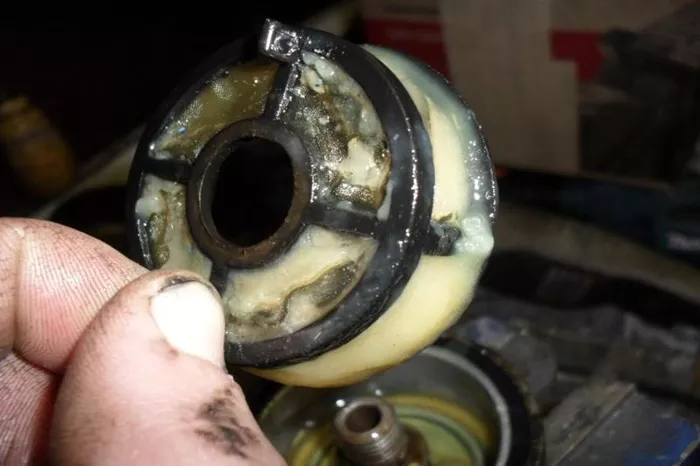Diesel fuel gelling is a common issue faced by drivers in cold climates. This phenomenon can cause significant problems for vehicles, especially during the winter months. In this article, we will explore whether gelled diesel fuel can thaw, the science behind fuel gelling, methods to prevent it, and practical solutions to address gelled fuel. We will use simple clauses to ensure clarity and comprehensibility.
What Is Diesel Fuel Gelling?
The Science Behind Diesel Gelling
Diesel fuel gelling occurs when the paraffin wax in diesel solidifies at low temperatures. Unlike gasoline, diesel contains paraffin wax, which provides lubrication and improves energy density. However, at cold temperatures, this wax starts to crystallize, causing the fuel to thicken and eventually gel. The gelled fuel can clog fuel lines and filters, preventing the engine from running properly.
Factors Contributing to Diesel Gelling
Several factors influence the gelling of diesel fuel:
Temperature: The primary factor is temperature. When the temperature drops below the fuel’s cloud point, the wax crystals begin to form.
Fuel Type: Different types of diesel fuel have varying cloud points. For instance, No. 2 diesel has a higher cloud point compared to No. 1 diesel.
Fuel Additives: The presence of additives can either inhibit or promote gelling. Anti-gelling additives can lower the cloud point and prevent wax formation.
Can Gelled Diesel Fuel Thaw?
Thawing Gelled Diesel Fuel
Yes, gelled diesel fuel can thaw. When the temperature rises above the gel point, the wax crystals dissolve back into the fuel, restoring its fluidity. However, this process is not always straightforward or quick, and sometimes intervention is necessary to expedite the thawing process.
Methods to Thaw Gelled Diesel Fuel
Increase Ambient Temperature: Moving the vehicle to a warmer environment, such as a heated garage, can help thaw the gelled fuel.
Use of Fuel Additives: Additives specifically designed to address gelled fuel can help dissolve the wax crystals. These additives are usually poured into the fuel tank and require the engine to be running to circulate.
Heating the Fuel System: Applying external heat to the fuel lines and filter can help thaw the fuel. This can be done using electric heaters or heat lamps. However, care must be taken to avoid overheating or causing damage to the fuel system.
Professional Assistance: In severe cases, professional mechanics can provide more advanced solutions, such as using hot water or steam to thaw the fuel system.
See also: What Is Diesel Fuel Oil?
Preventing Diesel Fuel Gelling
Choosing the Right Fuel
Using winter-grade diesel fuel, which has a lower cloud point, can prevent gelling. Winter blends typically include additives that lower the cloud point and improve cold weather performance.
Adding Anti-Gel Additives
Adding anti-gel additives to your diesel fuel before the onset of cold weather can significantly reduce the risk of gelling. These additives work by lowering the temperature at which wax crystals form.
Regular Maintenance
Regularly changing the fuel filter and ensuring the fuel system is clean can help prevent issues related to gelling. A clogged filter can exacerbate problems caused by gelled fuel.
Keeping the Fuel Tank Full
Keeping the fuel tank full minimizes the amount of air in the tank, reducing condensation and the formation of ice crystals. This can help prevent gelling and other cold weather issues.
The Impact of Gelled Diesel Fuel on Vehicles
Engine Performance
Gelled diesel fuel can cause significant performance issues. When the fuel gels, it can block fuel lines and filters, preventing the engine from getting the fuel it needs to run. This can lead to a lack of power, difficulty starting the engine, and in severe cases, complete engine failure.
Fuel System Damage
Repeated exposure to gelled fuel can cause damage to the fuel system. The additional strain on the fuel pump and other components can lead to premature wear and costly repairs.
Safety Concerns
In extreme cold conditions, a vehicle stranded due to gelled fuel can pose serious safety risks. It is crucial to address gelled fuel promptly to avoid being stuck in potentially dangerous situations.
Practical Tips for Handling Gelled Diesel Fuel
Emergency Measures
Carry Anti-Gel Additives: Keeping a bottle of anti-gel additive in your vehicle can provide a quick solution in case of gelling.
Use Block Heaters: Installing an engine block heater can help keep the fuel warm and prevent gelling.
Monitor Weather Conditions: Being aware of upcoming cold weather can help you take preventive measures, such as adding anti-gel additives and ensuring your tank is full.
Long-Term Strategies
Fuel Quality: Investing in high-quality winter-grade diesel fuel can reduce the likelihood of gelling.
Vehicle Maintenance: Regular maintenance, including checking and replacing the fuel filter, can help ensure your vehicle is ready for cold weather.
Professional Services: Consulting with a professional mechanic for advice on preparing your vehicle for winter can provide peace of mind and reduce the risk of gelling.
Conclusion
Diesel fuel gelling is a common issue in cold climates, but it can be managed and prevented with the right knowledge and tools. Understanding the factors that contribute to gelling, the methods to thaw gelled fuel, and the strategies to prevent it can help keep your vehicle running smoothly during the winter months. By taking proactive measures and being prepared, you can avoid the headaches and potential dangers associated with gelled diesel fuel.
Ensuring that you use the right fuel, add anti-gel additives, and maintain your vehicle properly will go a long way in preventing fuel gelling. In the event that your fuel does gel, knowing how to thaw it safely and effectively can get you back on the road quickly.
Related topics:
Will Old Diesel Fuel Cause Smoke?

